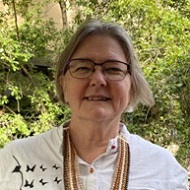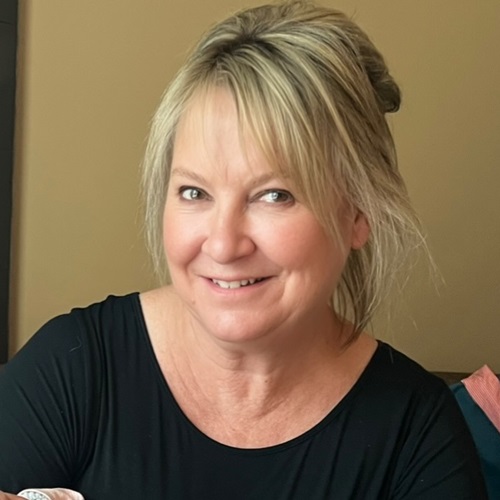ADCET Panel Session: A Needs-Based Funding Approach for Students with Disability - What are the opportunities and challenges?
This insightful and critical panel conversation focused on a possible needs-based funding approach for students with disability in Australian tertiary education and its potential for enabling a better experience for students with disability. This was in response to the Australian higher education sector looking to transition to a Needs Based Funding model, as recommended under the Australian Universities Accord.
Our expert panellists explored the key opportunities and risks of a new funding model to improve access, participation, and success for students with disability. They examined how a needs-based funding approach might affect support services, accessibility measures, curriculum design, and overall educational outcomes. They delved into the implications of needs-based funding for students with disability, and put forward suggestions for how needs based funding might be designed to support inclusion, and enable students with disability to thrive in universities and the broader tertiary sector.
Panellists

Andrew Norton is Professor in the Practice of Higher Education Policy at the Australian National University’s Centre for Social Research and Methods. He was previously the Higher Education Program Director at the Grattan Institute, a public policy think-tank. Mr Norton is the author or co-author of many publications on higher education topics. His Mapping Australian higher education 2023 is an overview of higher education policy and trends. In 2013-14 he was the co-author of a government-commissioned review of the demand driven student funding system. He was on the ministerial reference group for the Universities Accord.

Cathy Easte has worked with Griffith University, since 2010 where she is currently Manager, Student Disability and Accessibility. She has also worked for several Queensland TAFE colleges, private training organisations and disability services for well over 20 years prior. Cathy has been on committees for HEDN(Q), TEDCA, the very first ATEND, and is currently President. She is actively involved in the Queensland QDLO network. Cathy has personal interests in assistive technologies, e-learning and how these can enrich the experiences of students with disabilities. Training is Cathy’s other passion, wanting to increase the knowledge of academic staff, trainers and teachers to be able to meet the needs of their students without interaction from ‘others’. Cathy is Deaf and was one of the first Deaf persons to graduate as a Teacher of the Deaf in Griffith's Deaf Student Support program over 37 years ago.

Ebe Ganon is a young Canberran who is passionate about disability rights and systemic advocacy. Having started her university journey at the Australian National University in 2016, Ebe is currently studying a Masters of Disability and Inclusion at Deakin University. Her thesis is exploring the experiences of disabled university students in Australia, with a focus on how engaging in collective advocacy activities and peer connection influences their time at university and development of identity. Ebe is the Deputy Chair of Children and Young People with Disability Australia (CYDA), the national peak body and systemic advocate for children and young people with disability in Australia. She is also a member of the National Disability Data Asset (NDDA) Scoping Panel, which works to guide the work of the NDDA around data linkages and projects in support of the priorities of the disability community in Australia. Ebe has experience working as a professional staff member, equity practitioner, and casual sessional academic staff member across a range of institutions in the university sector.

Matt Brett PhD is Director of Academic Governance and Standards at Deakin University, Australia, where he has oversight for academic governance, academic policy, course approvals, equity reporting, institutional research and surveys, quality assurance, and quality reviews. Matt has longstanding research interests in equity, and specifically disability in higher education, with publications covering financing policy, inherent requirements, mental health, regional participation, and assessment.

Dr Nadine Zacharias is the Managing Director and Founder of Equity by Design, a specialist consulting firm in student equity strategy, program evaluation, and inclusive service design. Nadine leads transformative work in higher education to achieve a more equitable and high-performing sector which can support an increasingly diverse student cohort and leverage the potential of individuals for the common good. She has held senior management roles at Swinburne and Deakin Universities, led ground-breaking research projects and, with Dr Matt Brett and Prof Sally Kift, developed a proposed policy statement for Australian tertiary education in The Best Chance for All.

Yvonne Rolley was at the forefront of equity policy and social change in management in corporate Australia, before moving to the public service and the higher education sector where she introduced foundation work in progressive communication and student services development by positioning the student voice. Working with multiple student associations and senior management in seven Australian universities her work is underpinned by her professional social work practice and professional advocacy. This has led to more transparent, inclusive, approaches for progressing student well-being. Recent work in universities includes the design and implementation of Wellbeing Frameworks, developing a psychosocial model of inclusion, integrating student equity and accessibility policies, and service development on mental health and disability. Currently, at the University of Melbourne, she is managing equity, disability and inclusion and facilitating reform in student equity and disability service delivery in an educational context.
(August 2024)
ADCET is hosted by the University of Tasmania

